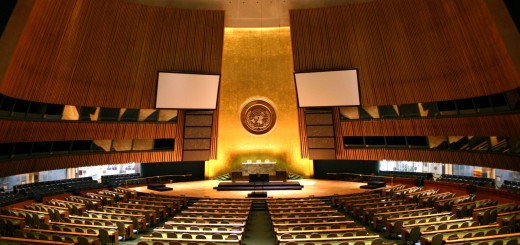“Ask me anything” (part 1)
I stopped at Reddit recently and let them ask me a bunch of questions. I had posted this previously, but it looked funky so I decided to repost it in parts… So, you can better follow it! Enjoy!

I don’t think those were the people asking the questions, though…
So, here were the questions and my answers:
Q: I have a question about governance and development. Which comes first?
I’ve read a lot of reports on how dysfunctional governance structures are in many developing countries and how they hold back economic development. Some aid organizations have focused on training various departments and agencies in these governments.
I’ve also seen the claim that governance structures are something of a luxury good and countries only invest in them once the country has some development and raised standard of living. If true, the way to get effective and non-corrupt governance wouldn’t be to focus on governance.
Seems a bit like a chicken and egg issue. What’s your take? If you have scarce resources to help a developing country, would you spend them on improving the governance structures or focus on economic development directly?
A: It’s not that much of a chicken and egg issue because they come together. I think you were referring to “development” more in terms in economic growth and that does not always translate to “real” development, which in my perspective would be an increase in a person/community or country’s well being. I may be advocating for my own cause here, but I believe governance structures are important to ensure transparency, accountability and participation. So when economic growth arrives, those can be prioritised according to the country’s needs and not only political interests. But most importantly, if and when public funds are misplaced or misused, there are enough mechanisms in place to make sure that those funds can be somewhat retrieved and/or the population can find out about and plan an effective (non-violent) response.
Q: That’s interesting. How do you define “real” development? I’d assume something like median income or average purchasing power parity or something along those lines would be the best. How do you measure well-being if not economic development?
A: I would go beyond just median income. The qualitative jump of indexes such as HDI, IHDI and even the GINI coefficient is to say that “the median income” average unfortunately misses out a lot of the systemic violence that several groups within unequal societies face. If a hypothetical country has a 5% growth, but you have also gathered that this income was not distributed, it was still concentrated in the 1% and the perception of insecurity – for instance – has raised, plus people have less access to education and health, I would not consider that “real” development
Q: I thought median dealt with the long tail problem pretty effectively. Obviously means/averages aren’t great measures in societies with large gini coefficients, but what’s wrong with median?
A: You are right in saying that median income is a much better than average or just GDP and economic growth alone. I know there is even a discussion of trying to include in the post-2015 development agenda. The fact is the most of us can’t use alone it for most planning and programming, especially when dealing with issues that go beyond economic empowerment. There is not a single thing to measure in development. We also need indicators for health, security perception, education, changing in behaviors and attitudes and that’s a lot to ask from a single coefficient or median
Q: Cool thanks for taking the time to give such thorough answers!
Q: If you don’t mind, I’m also curious if you have an opinion on how effective aid is generally. You’ve got the Jeffry Sachs of the world v. the William Easterly or Dambisa Moyo viewpoint. Do you think aid has typically been beneficial or harmful? If the way the developed world does aid has been generally harmful, can it be made beneficial generally, in theory and practice?
I assume if you’re in the field you have a positive viewpoint, but having read both sides, I find both persuasive (aid can be beneficial, but largely hasn’t been) and I don’t have a strong opinion. Some of the work MIT’s antipoverty lab has been doing seems particularly good to me, and the argument for giving cash instead of stuff (like heifer international) seem strong.
A: Hi guys, sorry it took me a while to get back, but I was supposed to give you a head start.
Having work in many different countries and situations, I would say that aid’s effectiveness is very context-dependent. In my perspective and experience, aid has been more effective when the funds are proportionally small or medium scale. Large operations, in my view, have trouble with “exit plans” and tend to create dependency not only for the local communities (because it becomes a viable livelihood), but also for the aid workers themselves.
A lot of my best experiences came with countries or communities that “hired” the aid organisation to help them achieve a determined goal and with that the aid organisation could “sneak in” other beneficial mechanisms, like human-rights approach, gender mainstreaming and so on… Or that the community had some ownership of the project – they may have established the priorities or the project was done based on a participatory assessment, which means that the results given directly reflected their short and long-term needs and not just an international agenda. The idea is always, people like to be in control of their lives and projects do better when they allow that… Without creating dependency – that’s the tricky part.
Personal note: What I didn’t say here is that I am a massive fan of Easterly’s work on aid. I read all the books, articles and follow him on every single social media outlet possible. But that would seriously ruin my “cool effect”. Just kidding, it didn’t occur me to explaining that. Although, I do believe his argument and Dambisa Moyo are really different and she comes from a much more financial background than development itself. Well, that discussion will be left for another day.
Q: Hi. I work in a similar field and have a few questions:
- Do you feel that aid in one form or another is usually ‘with string attached’? If yes/no, why?
- How can we provide an incentive to development work (specifically subcontractors) to strive beyond the low benchmark objectives set?
How do we justify the role of the private sector in, essentially, a public sector such as development and what does the future hold for private actors within development?
A: Hi! Good to know, hope I would be able to answer you questions, but feel free to ask (or demand) explanations:
- I think aid usually has strings attached, which is not necessarily bad when it comes to demanding a human-rights approach, transparency, but more times than not it does force a model of development (usually a very Western-centric neoliberal one).
Working with indigenous communities that became very clear to me, so sometimes, it is important to aid organisation to bear that in mind and try to provide the best for the community you are working with by understanding their priorities and fitting those into the “international” mould.
- I may not have fully understood the question. It can be that we have different understandings of objectives. I think development should be impact-oriented, which means have a long-term perspective. The usual problem with subcontractors is that there is a narrow, more specific view of the problem or they don’t have a complete perspective of the situation or the actors in it. They also may not have a lot of familiarity with the issue they are dealing with in that specific context. But unless we are talking about specific cases, I can’t give you a more specific response.
We all have responsibilities regarding development and governance. We have important and yet distinctive roles in this process. Besides an ecological model or doing a stakeholder analysis, it is important to point out that we should know what are our roles within governance and development and how can we provide or demand solutions from other actors. Having said that, there are a lot of governments and other sub-national actors that now actively rely on private actors to do “traditional” government work, as well as corporations having real incentives (marketing-wise and ethically) to “invest” in development. A lot of aid agencies have invested a lot in creating corporate relations and developing engagement so, I think those relations will become increasingly blurred. As long as development is the main concern, not just the survival of the involved organisations, I see no problem with it. But then again, we are in the running for the post-2015 agenda, so there is still a lot to be seen.
Related:
It’s finally here! Doing what you love!
Original post: http://www.reddit.com/r/AskSocialScience/comments/25qgwk/iama_governance_and_development_specialist_with_9/




